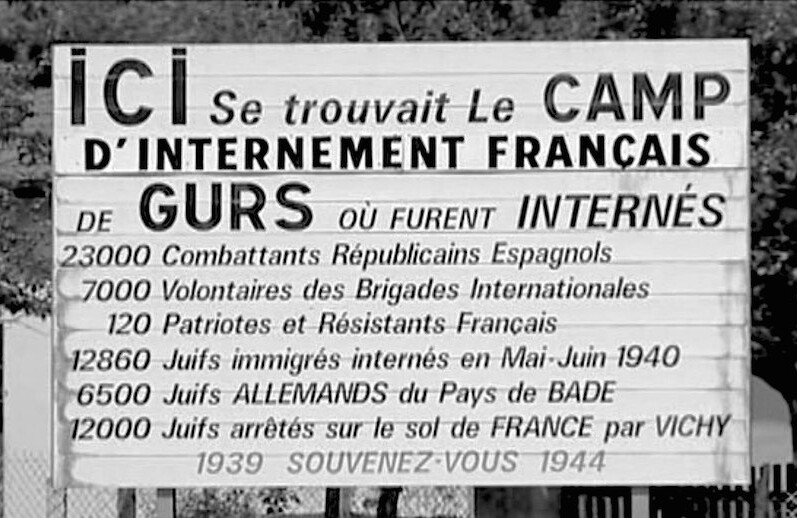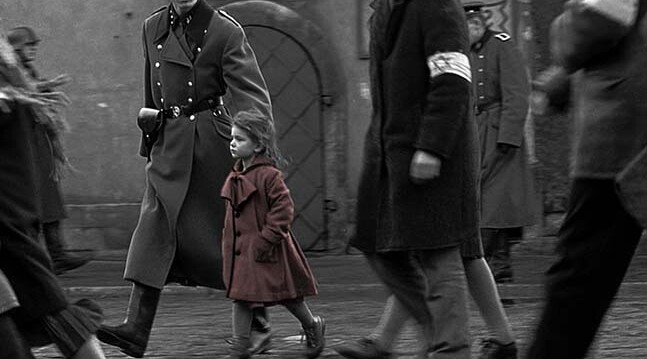This report was published in the World Alliance News Letter, April 1945. It was mentioned as follows in the March newsletter, but was not included for lack of space:
At last we have had word from Pasteur Jules Jezéquél, who for more than twenty-five years has been the French secretary of the World Alliance. He is one of the most trusted and valuable men on our international staff. We believe that he is one of the few active European secretaries who escaped death or imprisonment at the hands of the Nazis. His report covers his activities from 1939-45, and is, incidentally, the first direct communication the Alliance has received from Continental Europe since the German Armies began to march.After the war, Jezéquél and his son and daughter-in-law were nominated by Yad Vashem as one of the Righteous among Nations.
The World Alliance News Letter was published by the Church Peace Union (now Carnegie Council) and the World Alliance for International Friendship Through the Churches (American Branch).
For twenty years Pasteur Jules Jezéquél has been one of the most faithful and efficient representatives of the World Alliance—as one of our international secretaries, as secretary of the French Committee, and, for a number of years, as representative of the Church Peace Union in Paris. This is our first report from Pasteur Jezéquél since the beginning of the war:During the year September, 1939 to June, 1940, I was still able to travel. I was in Paris and Geneva and put everything in order. The High Commissariat of Information charged me with a mission to the Low Countries, which I accomplished in November, 1939.
After The Fall Of France In June 1940, I found myself at home in the country near Pau. It is there that I endured the frightful weeks of the campaign of France and the Armistice. From there I was able to go about only in the Unoccupied Zone, but only with difficulty.
I first busied myself with the Camp de Gurs, near my home. In this concentration camp there had been interned foreigners of all nationalities, principally German Jews. I helped them to ameliorate their situation and to get out of camp, if possible, and whenever possible, to find their families again. In July of 1940, most of the others were released, but they were obliged to remain in small localities of the Department. That created for me a sort of parish, the members of which I had to visit regularly and to help in every way, both spiritually and financially. For four years I have carried on this work. A large number left after the liberation, but I still help the few who remain.
A Miniature League Of Nations
With the shameful persecutions of the Jews, which began in my region in August, 1942, another task presented itself. I helped many escape arrest and deportation. I organized a placement service, lodging fugitives in safe houses, most often in the country on isolated farms. That necessitated many delicate maneuvers and dangerous removals. I gathered up as many of these unfortunates as my house could accommodate. At one time I had in my house a "League of Nations" in miniature. I had as guests a Russian, two Serbs, an Italian, a Spanish woman, three German women, two German men, and four Frenchmen. This went on for three years, some leaving, others arriving.
Later there were young Frenchmen who wished to escape forced labor in Germany, for whom, in addition to foreigners, I have been very busy finding hiding places and shelters. I helped many of them cross the French-Spanish frontier. Later I aided French officers who had been demobilized by the Vichy government. Soon this became extremely dangerous, especially since the frontier was guarded by the Germans themselves. Several friends, with whom I worked, passed the frontier with difficulty in escaping from the search of the gestapo. As for myself, I have never been seriously troubled, although the rumor of my arrest spread often.
Helping The Maquis
I had at my house a sort of Maquis, composed of Frenchmen and foreigners. During quite a long period we established a guard service. At dawn a sentinel was placed where he could watch the routes and give the alarm if German gangs or militia appeared. Measures were taken to enable my guests to flee immediately into the neighboring woods without leaving any trace of their visit. Several times we had lively alarms, but the house was never searched.
A great question during all this time has been that of replenishing the food supply. All those I had in my home and whom I had hidden elsewhere could have neither identity cards nor food cards, as all of them were "outlaws." Thus there was great difficulty in feeding them. It was essential to procure the necessary cards. This certainly was the part of the work which cost me most from the point of view of conscience. To make false cards or to have them made was to me extremely painful. But for all these people it was a question of life or death. The problem of feeding those in my home was partly solved by enlarging my vegetable garden.
Among all those whom I had in my home or aided there are, to my knowledge, only two losses to deplore: one, a doctor, a Hungarian Jew, a very distinguished man who left my house to give treatment to a Maquis and was killed on the way in an encounter with a German patrol. The other was a young German woman, also Jewish, who, having undergone an interrrogation by the Gestapo, killed herself before the eyes of her little daughter.
And now at last liberation has come. It came for the city of Pau, without a gun shot, on the 20th of August. The Germans left quite simply. I need not undertake to describe to you the explosion of our joy.
Facing The Future
And now another work is to be done: the immense work of the reconstruction of the world. A magnificent task rises before the World Alliance. The principles which it has sustained keep their value and their efficacy. Doubtless it may be necessary to modify somewhat the methods, for many things have changed. But is not our basic task the soothing of hearts and souls, the extinction of hatreds, the establishment of relations of confidence and friendship between peoples? Is not this first so that the rest of our program may follow and succeed? Isn't that the purpose of the World Alliance?


